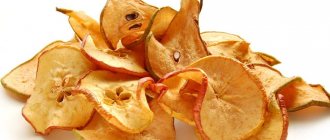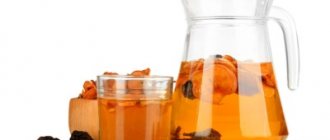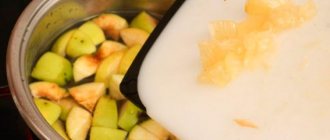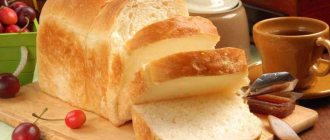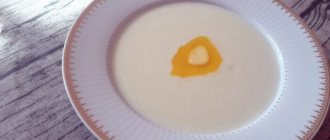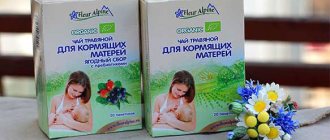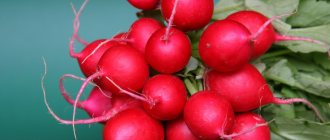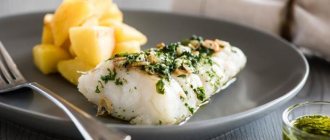Along with mother's milk, the baby should receive many vitamins and microelements. One source of these substances is fruits. It is not necessary to eat fruits raw - you can diversify your diet with drinks made from dried fruits. Compote during breastfeeding is of great benefit to both mother and child, as it helps improve digestion. However, it should not be consumed in large quantities.
Dried fruits and berries are the strongest allergens. Because of this, a woman during lactation can drink compote from them only a month after the birth of the child.
A nursing woman can introduce this drink into her diet in very small quantities, since substances unfamiliar to the child’s body, when ingested along with mother’s milk, can cause allergies, indigestion, colic, and also increase the level of gas formation. If you are allergic to any dried fruits, you cannot add them to the broth. The best option for cooking compotes when feeding are the following fruits.
- Dried apricots are able to stabilize blood pressure and also improve the digestive process.
- Raisins protect and restore the circulatory system and blood vessels.
- Rosehip during breastfeeding facilitates lactation and strengthens the immune system.
- Dates have a calming effect and also make bones stronger.
- Prunes will help strengthen the heart and arteries, regulate the gastrointestinal tract and strengthen the kidneys.
Drinking such compote during the period of difficult feeding is allowed, taking into account the time intervals after the birth of the child. A decoction of prunes or raisins can be added to the diet only 15 days after the birth of the baby. A drink based on dried apricots and figs can be consumed after a month.
Pampering yourself with date compote is allowed once the child reaches the age of 4 months.
In most cases, children respond well to this supplement, as it improves the taste of milk and enhances lactation. But if this drink causes stool problems or an allergic reaction in the baby, the mother needs to stop drinking the compote for a period of 1-2 months . The ideal time to drink compotes is a 20-minute period before feeding, and it is better to drink it warm.
Is it allowed for breastfeeding?
Experts consider this drink useful. The compote contains many vitamins and other elements necessary for a woman and a child who receives them through breast milk.
But doctors advise limiting the consumption of raisins and prunes in the first month after birth. You can gradually introduce them into the diet of a nursing woman 14 days after the birth of the baby.
Dried apricots and figs are allowed in the second month of the breastfeeding period, dates - no earlier than four months after birth.
The main question: can a nursing mother eat dried fruits?
Dried fruits contain almost the same amount of vitamins and minerals as fresh fruits. Therefore, they are able to improve the appearance and well-being of the mother, saturate the milk with nutrients and enhance lactation.
In addition, this is an excellent prevention of constipation in the baby and mother. The main thing here is not to overdo it and not cause loose stools. In general, doctors recommend dried fruits to replace sweets, which a nursing mother sometimes also craves.
However, when breastfeeding in the first month (and some doctors recommend up to three) of the child’s life, it is better not to add dried fruits to the diet. During this period, you should strictly adhere to the diet for a nursing mother, because the baby’s digestive system is still adapting to unusual living conditions. Read about nutrition for a nursing mother in the first month of a baby’s life here.
Is there any benefit
Any fruit mixture can cause colic in a baby and disrupt the functioning of the digestive system. Therefore, pediatricians recommend that women during lactation drink compotes made from dried fruits with extreme caution. Before cooking, you need to soak them for at least three hours.
According to nutritionists, consuming such compotes brings greater benefits to the body compared to a drink made from fresh fruits. Dried fruits contribute to the rapid recovery of a nursing mother after childbirth and saturate the child’s body with the necessary elements.
Dried fruits have also been found to help improve lactation. If the amount of breast milk is insufficient, doctors advise drinking 200 ml of warm compote half an hour before feeding the baby.
The drink helps cope with constipation not only in mothers, but also in newborns.
Compote is an excellent remedy for this and, compared to medications, has a gentler effect on the intestines.
Among the main beneficial properties of the drink:
- strengthening the immune system;
- improved breast milk production;
- normalization of the digestive system;
- a source of vitamins for women and babies during breastfeeding.
Benefits of dried fruit compote
During breastfeeding, it is important to properly formulate a diet, because all substances pass through milk to the baby. Compotes or teas with the addition of dried fruits are useful at any time, especially in winter.
The drink improves lactation, normalizes digestion, and has a beneficial effect on the condition of the skin and hair. Dishes made from a mixture of fruits cope with constipation in the mother, and are easier for the baby to digest than fresh fruits. Vitamins and minerals improve the functioning of nerve cells, iron, potassium improve immunity.
A positive characteristic is the preservation of the necessary beneficial elements during drying of the fruit. The compote mixture includes: dates, raisins, dried apricots, apples, pears, prunes.
The edible fruits of the date tree are very nutritious and tasty, as well as easily digestible. The production of the lactation hormone, oxytocin, increases. Dates strengthen the body's defenses, improve brain function, improve memory, and relieve fatigue. The maximum daily dose of fruit for a nursing mother is 5 pieces. There are restrictions for use (stomach ulcers, diabetes, allergies).
The fruits should be shiny, smooth in appearance, wrinkling is allowed. It is forbidden to buy and use dates with traces of mold or sugar crystals on the skin. A large amount of sugar has a bad effect on the condition of tooth enamel, so after eating the fruit in its pure form, it is recommended to rinse your mouth with water.
Raisins are dried grape fruits. The product contains vitamins and minerals. The properties of raisins relieve fatigue, give energy, normalize metabolic processes in the body, strengthen the cardiovascular system, normalize sleep, and improve immunity.
We recommend reading: What kind of jam can you use while breastfeeding?
Before use, dried grapes should be poured with boiling water and left for a few minutes. Raisins are harder for the digestive system, so they are allowed to be consumed no earlier than two months.
Another component of the compote mixture is prunes. These are dried plums and are a natural laxative that helps with constipation. Prunes contain a large amount of minerals, coarse fiber, vitamins, are a diuretic and antibacterial dried fruit, and have hypotensive properties.
Due to the strong cleansing effect due to fiber, prunes can relax the baby's digestive system. It is better to introduce dried fruit into the diet of a nursing mother no earlier than three months - 2-3 pieces. The berries should be dark and wrinkled. Fruits that are too coarse, hard or soft have been improperly processed, stored or dried.
Dried apricots are called dried apricots and contain potassium, magnesium, and phosphorus. This is an effective product for strengthening the body's defenses. The orange fruit can become a strong allergen for babies, so the mother needs to be careful when introducing dried apricots.
After the birth of a child, dried fruit is consumed in the second month, no more than 100 g. If consumed excessively, reactions of the child’s body are possible. It is important to choose high-quality fruits - not deformed, without rotten lesions, spots, but inconspicuous in appearance. Bright, juicy berries are treated with special chemicals.
Apples are allowed during lactation from the first weeks. Not only the internal components, the pulp, are useful; the amount of vitamins is contained in the peel of the fruit.
Properties of apples:
- Normalization of digestion.
- Prevention of stool retention.
- Reducing the risk of cancer.
- Normalization of cholesterol.
Thanks to fiber, digestion and hematopoiesis are normalized. Dried berries (cherries, plums, strawberries) are used to prepare compote. Cherry compote rarely causes allergies and saturates the body with ascorbic acid.
When breastfeeding, a young mother should choose safe and maximally healthy foods.
Varieties
Dried fruits are the main source of dietary fiber and fiber, the effect of which is aimed at improving digestion.
Nutritionists identify several types of fruits that are most beneficial for the body during breastfeeding:
- Dried apricots . Helps normalize blood pressure and improve digestion. This is a dietary product that experts recommend introducing into the diet for anemia. The fruit has a laxative and diuretic effect. It contains iron, magnesium and other useful elements.
- Prunes . Restores the functioning of the gastrointestinal tract and kidneys. Improves the condition of the skin. Gives a mild laxative effect. Contains a large amount of fiber, vitamins, glucose and fructose.
- Dates . Their action is aimed at strengthening the nervous system and bones, maintaining muscle tone. This fetus is also involved in the production of oxytocin, a hormone that is especially important during breastfeeding.
- Apples . Contains phosphorus, iron and other vitamins. It is recommended to include it in the diet to prevent anemia, as well as strengthen hair, nails and teeth.
- Raisin . Has a positive effect on the nervous system, heart and blood vessels. Helps get rid of insomnia, eliminates gastrointestinal problems. It contains potassium, lactose, and nicotinic acid.
During breastfeeding, experts do not recommend eating dried bananas, figs and mangoes.
What pregnant women and nursing mothers should remember
Pregnancy and breastfeeding are very important periods in the life of mother and baby. If you drink tea with milk, then we offer several recommendations that will help you avoid the unpleasant consequences of drinking the drink.
- Monitor your well-being and carefully monitor your baby's reactions.
- Do not exceed your daily fluid intake, including tea with milk, otherwise you risk swelling or other problems.
- Also, always be responsible when choosing tea and milk. The milk must be fresh and the tea must be of high quality. Do not drink tea with flavorings and dyes, because they can harm an adult, healthy person, not to mention a pregnant woman or baby.
- Eliminate tea with milk from your diet if painful reactions occur in both your body and your baby. Be sure to consult your doctor.
How to drink compote correctly during breastfeeding
The introduction of dried fruits into the diet should be gradual. As already mentioned, fruit drinks are allowed at the end of the second or third week after birth.
For the first time, it is advisable to use one type of fruit to prepare compote. Over the course of several days, you need to monitor whether the child has an allergic reaction or disturbances in the gastrointestinal tract.
If such conditions are not observed, you can drink dried fruit compote. If a side effect develops, it is better to abstain.
In order not to harm the baby, the mother should follow some recommendations:
- the daily intake of dried fruit compote should not exceed 200 ml, and it is advisable to drink it before noon;
- It is forbidden to drink the drink daily;
- The permissible limit per week is no more than three glasses.
In the first few months it is better to drink liquids. Fruits and berries can be eaten only after the child gets used to the new product.
For the first time, the decoction is consumed during breakfast or lunch, but not more than 50 ml.
Harmful factor of eating dried fruits
A recipe made from dried fruits will not harm a woman or child if the basic rules of use are taken into account:
We recommend reading: What compotes can nursing mothers drink?
- You cannot eat dried fruit if you know that it did not grow in our country. Exotic fruits often undergo special processing to increase shelf life. The buyer cannot be completely confident in the high quality of such a product.
- It is not allowed to eat foods that have a clearly visible glossy sheen. In this case, we can say with one hundred percent certainty that it underwent special processing. Harm to the baby is guaranteed, and lactation itself can worsen.
- The fruit should be discarded if it shows characteristic signs of mold. It negatively affects the mother's body and can lead to serious food poisoning in the child.
- Remember that prunes weaken the intestines. Therefore, it should not be consumed in large quantities. Such exposure is dangerous for a newborn and can lead to serious distress.
Popular drink options
There are a wide variety of recipes for making compote from dried fruits.
Option 1
To cook compote from apples, you need to rinse them well. Then add boiled water and leave for 10 minutes. This helps destroy pathogenic bacteria. Then the water is drained.
The fruits are transferred to another container and cold water is added. Place the pan on the fire and wait until it boils.
Cover the mixture with a lid and cook for half an hour . After completing the process, you need to give the drink time to cool, then strain and add granulated sugar to taste.
Ingredients:
- water - 2 l;
- fruits - 200 g;
- sugar - 1.5 tbsp. l.
The finished drink can be drunk hot or chilled.
Option 2
If you don’t have time to stand near the stove, you can use a slow cooker.
To cook a delicious compote, you need to prepare:
- water (choose the volume based on the size of the bowl);
- mixture of dried fruits;
- granulated sugar.
The fruits are washed and poured with boiled water for a quarter of an hour. You can leave it to soak overnight.
Afterwards they are transferred to a saucepan and left in stewing mode for 40 minutes. It is better to sweeten the prepared liquid at the end of cooking.
Tea with milk when breastfeeding
Is it possible to drink tea with milk while breastfeeding? And if you drink it, which tea is better? Black or green? Sooner or later, every mother asks herself these questions.
During breastfeeding, it may be better to drink green tea because it contains 3 times less caffeine than black tea (although some scientists refute this). In addition, green tea will help a woman stay healthy, because it contains vitamins C, P, B, E, K, A and microelements (fluorine, iodine, calcium and phosphorus), which are so necessary for the body of a nursing mother.
Let's look at the pros and cons of drinking tea with milk while breastfeeding.
Advantages
Vitamin and mineral composition of the drink. Naturally, the baby and mother simply need additional sources of vitamins and minerals, and the combination of tea and milk is simply an excellent source of everything necessary. Provided, of course, that you use good quality tea and fresh milk. A nursing mother is constantly thirsty, and a tea and milkshake has the ability to quench her thirst for a long time. The pleasure of drinking a drink
It is very important that the nursing mother is happy and in a good mood. If a cup of tea with milk brings you pleasure, then feel free to drink it, because how your baby feels depends on your mood
The drink gives strength to a nursing mother. Every woman with a small child knows what tiredness is in the morning.
Flaws
- Tea contains caffeine, but tea contains half as much as coffee, and its effect is longer.
How can this be dangerous for the baby? If you drink no more than three cups of milk tea a day, then most likely nothing. Breast milk will contain only 1% of this substance, which will be absolutely safe for the baby. But it should be remembered that a child may have individual sensitivity to caffeine.
If you notice that after drinking tea or coffee, the child is more agitated, sleeps poorly, etc., then you better give up tea and similar drinks for 3-7 days.
Monitor your baby during the period of withdrawal from stimulating drinks, and if during this period he behaves more calmly, then most likely the reason is caffeine, and you will have to give up tea with milk for the entire period of breastfeeding. You can drink compotes, jelly, decoctions of dried fruits, and so on. In addition, the optimal choice for a nursing mother in such a situation would be white tea, as it has beneficial properties, but also contains a minimal amount of caffeine.
- Some babies react painfully to cow's protein contained in milk. They get stomach pains. Keep an eye on your baby. If colic appears after drinking tea with milk, then, unfortunately, you will have to give up the drink.
To increase breast milk lactation
Milk tea is often recommended to increase lactation. In fact, the drink cannot have such an effect, that is, the amount of milk will not increase, but the flow will simply increase if you drink tea with milk before feeding (like any hot drink). Thus, by drinking a drink right before feeding, you ensure a good flow of your milk to your breast and make the “work” easier for your baby.
In order for breastfeeding to be as comfortable as possible, a nursing mother needs to drink up to 2 liters of fluid per day. It can be just water, black or green tea, milk, milk tea, compote or another drink that you like. However, it’s definitely not worth drinking certain drinks forcefully just to increase lactation. If you drink more than three liters of water per day, you can get kidney problems, and such complications can negatively affect the quality and quantity of breast milk.
When is it better to stop drinking compote?
Before starting to prepare compotes, a young mother should make sure that she and her newborn do not have a predisposition to allergies to dried fruits. First, try a small amount of them raw.
Expert opinion
Anastasia Mikhailovna Moiseeva
Practicing general practitioner, 18 years of experience.
If a child experiences an allergic reaction in the form of rashes and redness of the skin, then it is better to exclude this dish from the diet.
Harmful factor of eating dried fruits
A recipe made from dried fruits will not harm a woman or child if the basic rules of use are taken into account:
We recommend reading: What compotes can nursing mothers drink?
- You cannot eat dried fruit if you know that it did not grow in our country. Exotic fruits often undergo special processing to increase shelf life. The buyer cannot be completely confident in the high quality of such a product.
- It is not allowed to eat foods that have a clearly visible glossy sheen. In this case, we can say with one hundred percent certainty that it underwent special processing. Harm to the baby is guaranteed, and lactation itself can worsen.
- The fruit should be discarded if it shows characteristic signs of mold. It negatively affects the mother's body and can lead to serious food poisoning in the child.
- Remember that prunes weaken the intestines. Therefore, it should not be consumed in large quantities. Such exposure is dangerous for a newborn and can lead to serious distress.
Calorie content and chemical composition of cherry compote
This decoction is made from cherries with dense pulp. It is considered one of the best berry drinks. The nutritional value of cherry compote is 40–99 kcal per 100 ml and depends on the method of preparation (concentration of sugar and fruit). If the decoction is prepared from 500 ml of water, 200 g of sugar and 0.5 kg of cherries, its calorie content will be 98–100 kcal.
It includes the following main energy sources:
- proteins - 0.3–0.4 g;
- fats - 0.1–0.2 g;
- carbohydrates - 13–24 g;
- ash - 0.1 g;
- dietary fiber - 0.4 g.
The cherry decoction contains the following elements that do not lose their beneficial properties even when preserved:
- vitamins C (1.2 mg), E (0.1 mg), PP (0.1 mg), groups B and A;
- potassium - 52 mg;
- phosphorus - 6 mg;
- beta-carotene - 20 mg;
- calcium - 11 mg;
- sodium - 5 mg;
- magnesium - 6 mg;
- iron - 0.1 mg.
From dried apples
You will need:
- 1 liter of purified water.
- One hundred grams of dried apples.
- A tablespoon of sugar.
The dryer must be rinsed well under running water. Then pour boiling water and let it brew for at least fifteen minutes. During this time, the bacteria will be destroyed. Afterwards you need to drain everything. The drying material is placed on the bottom of the pan and poured over. Bring to a boil, and then simmer for 3 minutes with the lid closed. After cooking, wait until it cools and strain through a colander or sieve.
Add sweetness at the very end according to your taste, but under no circumstances make the drink overly sweet.
The uniqueness of dried fruits
And this is only a small part of the components that make up the treat. Regular consumption will help replenish the supply of vitality that the female body loses during pregnancy and breastfeeding, and supplementing the daily menu with dried fruits will prevent constipation in a young mother.
The advantage of the product is also its high calorie content. Dried fruits are convenient to take with you on a walk; they can replace a daytime snack or add to your morning porridge.
Recipe in a slow cooker
Young girls really need this recipe. The drink turns out delicious and retains all its healing qualities.
Ingredients
- Half a glass of dates.
- Half a glass of dried apples.
- Half a glass of raisins and prunes.
- Sugar to taste.
We wash the fruits and pour boiling water over them. If possible, leave for 15-20 minutes. Then put the mixture on the bottom of the bowl and fill it to the maximum. Set the multicooker to simmer mode. The multicooker itself will notify you when everything is ready. We make it sweet at the very end.
In a slow cooker from dried apricots
A nursing mother can use this simple recipe . It will perfectly improve the gastrointestinal tract and is suitable for dietary nutrition.
Ingredients:
- Dried apricots – 200 grams.
- Water - 1 liter.
Read also: What kind of cookies can a nursing mother eat: baby, shortbread, biscuit
Rinse. Pour boiling water over and leave for 15-20 minutes. Then place the dried apricot on the bottom of the bowl, add sugar and pour over. Set to soup mode and cook for one hour. After notification, leave in the multicooker for another hour.
With rose hips
Ideal for those who have had a caesarean section. Restores cells and improves blood flow. Gives milk a pleasant taste.
Ingredients:
- A glass of rosehip.
- Water 3 liters.
We wash the rose hips with a running stream. Place on the bottom of the pan and fill to the top. Bring to a boil, and then simmer under the lid for one hour. After cooking, strain and, if necessary, sweeten to your liking.
How often can you use it and at what time of day?
In order not to harm the baby’s health, compote is consumed according to the following scheme:
- Drink no more than 200 ml per day and no later than the first half of the day.
- Do not drink the drink daily.
- You can drink no more than 2-3 glasses per week.
If no changes in the baby’s condition occur within a month, the mother can drink compote as much as she wants.
It is not advisable to consume store-bought compotes. They contain flavorings and preservatives that are harmful to the health of even an adult.
